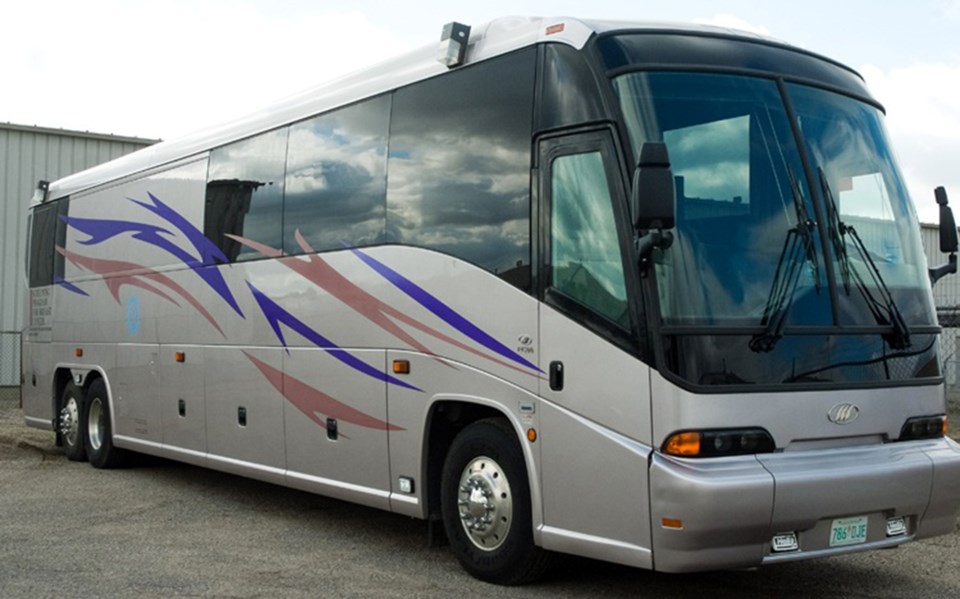ESTEVAN — An estimated 760 Saskatchewan women will be diagnosed with breast cancer in 2022, and 170 will die from the disease, according to the information provided by the Cancer Foundation of Saskatchewan.
Breast cancer is the leading cause of cancer in women and the second leading cause of their death.
While breast cancer is more widespread in women 50 years of age and older, the disease can occur at any age in both women and men.
There is, however, a resource that can help to prevent severe outcomes of breast cancer, improving access throughout the province.
"The screening mammogram is such an important and potentially life-saving exam. It checks for breast cancer in women who have no signs or symptoms of the disease, so it is an absolutely critical tool in detecting breast cancer at its earliest stages. When cancer is caught early, there can be more treatment options and better outcomes. We know that early detection saves lives," said Nora Yeates, CEO of the Cancer Foundation of Saskatchewan.
The Saskatchewan Health Authority says mammograms are the best screening test for people at average risk of breast cancer. Guidelines for when to start having mammograms and how often to have them vary from province to province.
"You should discuss the benefits and harms of mammograms with your doctor. He or she can help you decide when to start and how often to have a mammogram," the SHA says on its website. "Your doctor can help you find a breast cancer screening program in your area."
For people who are at average risk for breast cancer, the Canadian Task Force on Preventive Health Care recommends the following guidelines. Regular mammograms are not recommended for women ages 40-49. Women between 50-74 should do regular mammograms every two or three years. Women 75 years of age and older should talk to their doctor about whether they need breast cancer screening.
The Screening Program for Breast Cancer operates two permanent screening centres in Regina and Saskatoon. Satellite centres are in Moose Jaw, Swift Current, Yorkton, North Battleford, Prince Albert and Lloydminster, but for many Saskatchewan women, and sometimes men, a mobile bus, which has been travelling throughout rural and northern Saskatchewan since 1990, has been the most convenient option.
That is one of the ways for people in the Estevan area to be screened for breast cancer as well.
The mobile mammography bus runs on a two-year cycle. The bus comes to Estevan (near the Hotel Estevan, formerly Super 8 Hotel) in January, Carnduff in late February, and Carlyle in mid-March in even-numbered years, and to Weyburn in January in odd-numbered years, according to the Sask. Cancer Agency.
Altogether, the Breast Cancer Screening Bus provides screening services to women in nearly 40 rural and remote communities across Saskatchewan. The schedule may change if the program encounters any staffing issues, workload changes or equipment breakdowns.
A patient doesn't need a doctor's referral to make an appointment for a screening mammogram.
The Screening Program for Breast Cancer provides screening mammograms to Saskatchewan women who are 50 years of age or older, do not have symptoms of breast cancer such as lumps, bloody nipple discharge or skin changes, do not have breast implants, are not on active follow-up for breast cancer, and have been cancer free for five years.
The screening program has been testing many Saskatchewan residents through the years, and the Cancer Foundation of Saskatchewan launched a new campaign in the fight against cancer to update the equipment to ensure they are still able to do their best to detect breast cancer at its early stages.
The current bus, purchased in 2002, needs to be replaced, said the Cancer Foundation of Saskatchewan in a press release. Accessing parts for repairs and maintenance on the 20-year-old vehicle is challenging, resulting in time off the road and reducing access to potentially life-saving screening mammograms for Saskatchewan women.
To ensure every woman in Saskatchewan has access to a screening mammogram, the Cancer Foundation of Saskatchewan committed to raising $2 million by the end of March 2023 to replace the aging bus and its digital mammography equipment.
"This bus has facilitated more than 250,000 screening mammograms over the past 20 years, and we need to replace it so that it can continue to offer this potentially life-saving exam to thousands more women in the years ahead," said Yeates.
The foundation is focused on raising the funds to enable the replacement and upgrading of the bus.
"People in Saskatchewan have been very generous to the Cancer Agency over the years, and I want to thank all of our donors past and present for their contributions," said Deb Bulych, interim president and CEO of the Saskatchewan Cancer Agency. "A new mammography bus will allow us to continue to reach populations in rural and surrounding communities to improve breast cancer outcomes."
A new Breast Cancer Screening Bus will address all of the current issues and will include state-of-the-art mammography equipment, enabling it to provide leading-edge, potentially life-saving mammography screening services well into the future.
In the meantime, all questions about breast cancer concerns should be discussed with doctors, and screening can be arranged at one of the permanent facilities or through the bus during scheduled times.
To book an appointment, call the Sask. Cancer Agency at 1-855-584-8228 between 8 a.m. and 4:30 p.m. There are evening appointments at some of the locations as well. People can also email early detection co-ordinators at [email protected] for more information about the screening program.




